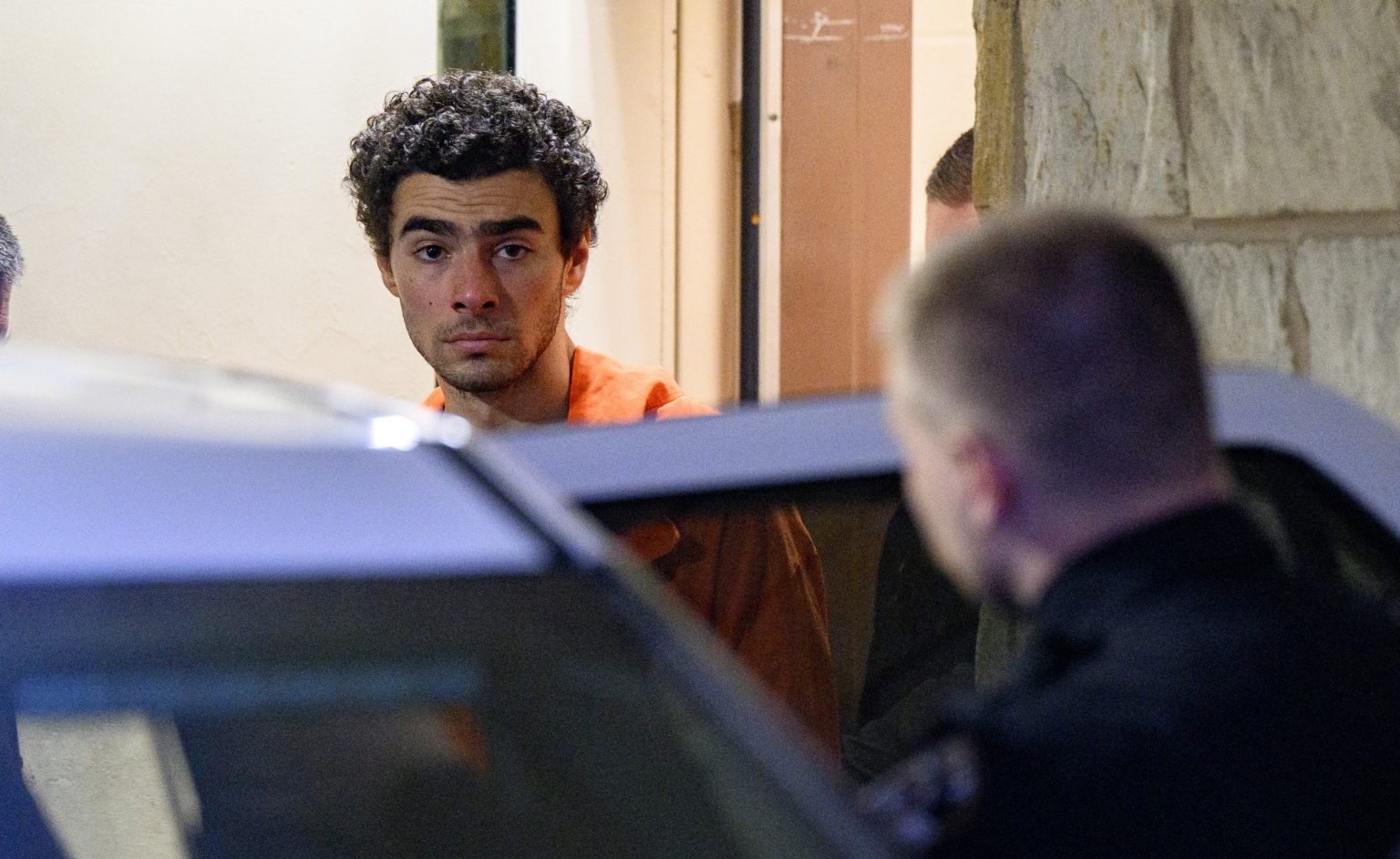The bizarre case of Luigi Mangione, the man accused of murdering UnitedHealthcare CEO David Thompson, took an even stranger turn when attendees at a Boston dance party erupted in cheers upon seeing his image projected onto a large screen. The incident, captured in videos circulating on social media, occurred during a “Jingle Bop” event hosted by Bop to the Top Tours at the Big Night Live venue. As the DJ played Miley Cyrus’s “He Could Be The One,” a montage of photos featuring Mangione, sourced from his social media accounts, flashed across the screen. The crowd’s enthusiastic reaction, seemingly escalating as his booking photos appeared, underscores the unexpected notoriety Mangione has garnered since his arrest. The event organizers themselves appeared to acknowledge the unusual reaction, reposting a TikTok video of the incident with the caption “Too unserious.” This incident highlights the unexpected and somewhat unsettling fascination with Mangione that has emerged online.
Mangione’s transformation into an unlikely online sensation began following his apprehension at a McDonald’s in Altoona, Pennsylvania, on December 9th. Since then, he has become the subject of significant online attention, with some individuals even referring to him as a sex symbol. This unexpected popularity has translated into tangible support, with a fundraising campaign amassing over $100,000 for his legal defense. His attorney has also reported receiving numerous offers from individuals willing to cover Mangione’s legal expenses. While the reasons for this outpouring of support remain unclear, it signifies the unusual trajectory Mangione’s case has taken in the public sphere. His newfound notoriety contrasts sharply with the gravity of the charges he faces, including second-degree murder in connection with Thompson’s death.
Currently held without bail at the State Correctional Institution Huntingdon in Pennsylvania, Mangione faces gun and forgery charges in that state. Prosecutors in Manhattan are pursuing his extradition to New York, where he will face the murder charge and other related offenses stemming from Thompson’s killing. The 50-year-old CEO was fatally shot on December 4th while walking alone to his company’s annual investor conference at the New York Hilton Midtown. Mangione’s lawyer, Thomas Dickey, has indicated that his client intends to plead not guilty to the charges in Pennsylvania and will contest the extradition to New York. However, Manhattan District Attorney Alvin Bragg has suggested that Mangione might be reconsidering his opposition to extradition. The legal proceedings are ongoing, with prosecutors preparing for both scenarios – whether Mangione waives extradition or continues to fight it.
The evidence against Mangione appears substantial. Police have linked the firearm discovered upon his arrest to shell casings recovered at the crime scene. Furthermore, his fingerprints have been matched to a water bottle and a wrapper found near the scene. A handwritten note discovered in Mangione’s possession provides a glimpse into his potential motivations. The note rails against “parasites” who “had it coming,” seemingly referencing the healthcare industry. It critiques the exorbitant costs of healthcare in the United States and the escalating profits of large corporations, contrasting them with stagnant life expectancy. The note also condemns corporations for exploiting the American public and suggests that Mangione is the first to confront this issue with “brutal honesty.”
The apparent connection between the note’s content and Thompson’s position as CEO of a major healthcare company adds a layer of complexity to the case. While the note doesn’t explicitly mention Thompson or UnitedHealthcare, its focus on corporate greed within the healthcare industry suggests a possible motive for the killing. This apparent ideological motivation further distinguishes Mangione’s case from typical murder cases. The combination of the seemingly targeted nature of the crime, the suspect’s unusual online popularity, and the public display of support at the Boston dance party creates a perplexing narrative that continues to unfold. The case highlights the unpredictable nature of public perception and the complexities of assigning motive in criminal cases.
The juxtaposition of Mangione’s online notoriety with the severity of the charges against him underscores the often-bizarre and unpredictable nature of public interest. The cheers at the Boston dance party, while shocking, are a testament to the power of social media and the rapid spread of information, even in the context of serious criminal allegations. The case raises questions about the nature of celebrity and the factors that contribute to online fascination. It also highlights the ongoing debate surrounding healthcare costs and corporate accountability in the United States, themes present in the note found on Mangione. As the legal proceedings continue, the complexities of this case are likely to be further explored, potentially shedding light on the motivations behind Thompson’s murder and the unusual public reaction to Mangione’s arrest.

